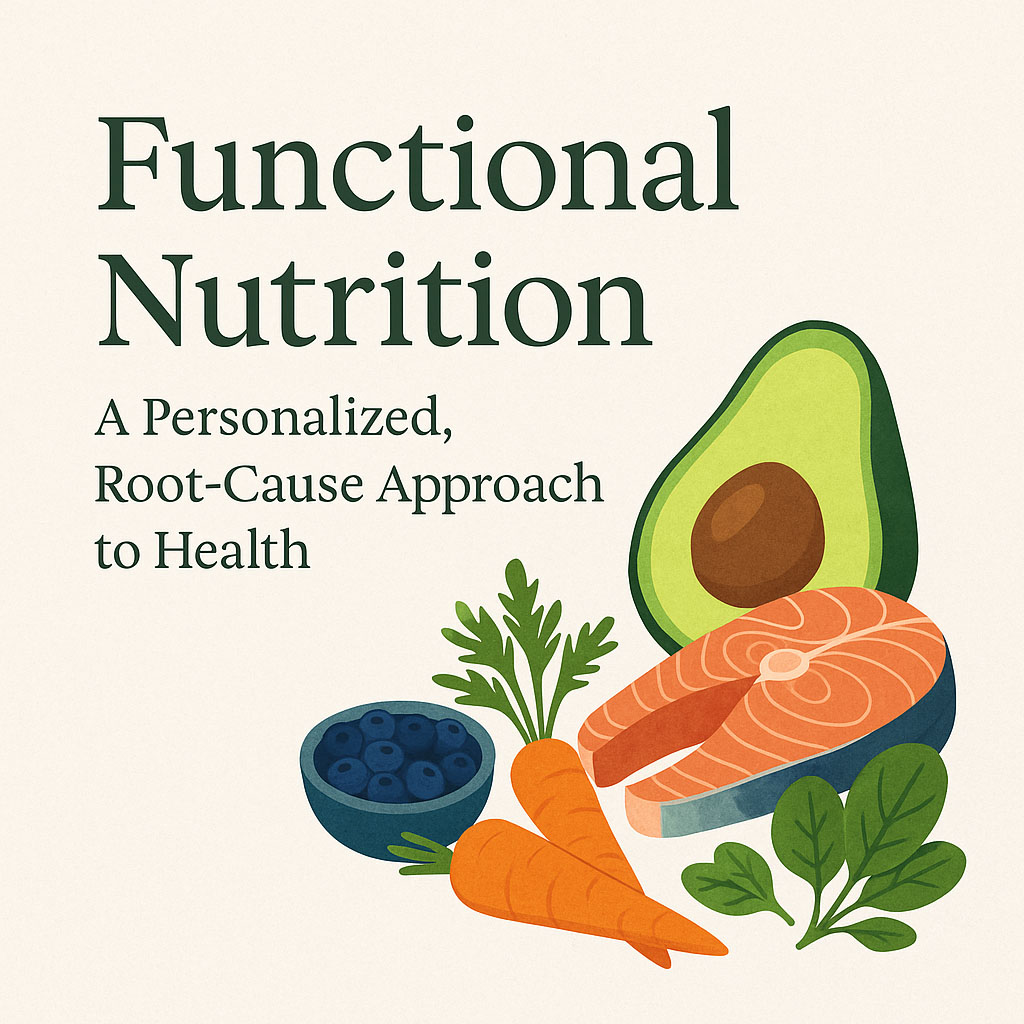We live in an age of hyperconnectivity. Our phones wake us up, guide us through the day, entertain us before bed, and often sleep beside us. As convenient as our digital lives have become, this constant engagement with screens comes at a hidden cost. Behind every scroll and tap lies a ripple effect—one that quietly undermines our gut health, hormone balance, and emotional well-being.
Imagine this: You wake up, check your emails before getting out of bed, scroll through social media over breakfast, switch between tabs and notifications all day, and unwind in front of a glowing screen late into the night. Sound familiar? For many professionals, this is the norm. But each digital interaction sends a subtle stress signal to the body, and these signals add up.
Research shows that reducing screen time—even by a modest amount—can improve sleep, reduce stress, and enhance mood. A two-week experiment cutting social media use to 30 minutes a day led to better sleep and lower anxiety in participants. But what does any of this have to do with hormones and gut health?
How Screens Disrupt Hormonal Balance
Let’s start with melatonin, your body’s sleep hormone. Exposure to blue light from screens in the evening suppresses melatonin production. That makes it harder to fall asleep and stay asleep. Sleep deprivation doesn’t just make you groggy—it throws off your entire hormonal rhythm. Cortisol, your stress hormone, stays elevated. Insulin sensitivity drops. Appetite-regulating hormones like leptin and ghrelin go haywire. In short, your body stops functioning like it should.
When melatonin is suppressed, cortisol remains elevated later into the evening. Cortisol, while essential for alertness in the morning, becomes disruptive when it lingers into the night. Elevated evening cortisol can lead to difficulty falling asleep and staying asleep. The result? A cycle of poor sleep, stress, and hormone imbalances that affect everything from metabolism to reproductive health.
And that’s just the beginning.
The Gut-Brain-Hormone Connection
This digital overload keeps your nervous system in a near-constant state of alert. Your body thinks it’s under threat. Digestion slows, blood flow is redirected away from your gut, and the delicate balance of your microbiome is disrupted. Over time, this can lead to bloating, irregular bowel movements, food sensitivities, and even chronic inflammation.
Your gut and brain are in constant conversation. When you’re stressed—whether from an intense meeting or endless notifications—your gut feels it. And if your gut is imbalanced, that miscommunication affects your mood, focus, and even decision-making. It’s a two-way street, and your device habits are often the traffic jam.
Gut bacteria play a crucial role in metabolizing hormones. Estrogen, for example, is processed by certain bacterial strains. When those strains are diminished due to stress or poor dietary habits, excess estrogen can circulate in the bloodstream, leading to symptoms like PMS, fatigue, or mood swings. Additionally, the gut produces more than 90% of the body’s serotonin—a key neurotransmitter involved in mood regulation. When gut health is compromised, serotonin production may be impaired, contributing to anxiety and depression.
Why Busy Professionals Are Especially at Risk
Professionals are especially vulnerable. Long hours, multiple screens, high demands, and limited downtime mean their systems rarely get a break. Often, the same tools that help manage a career end up sabotaging health. Checking one more email before bed or bringing your phone to the dinner table might seem harmless, but over time, it chips away at your body’s ability to rest, digest, and repair.
This always-on culture encourages multitasking, late-night work, and minimal boundaries between work and home. The result is chronic low-grade stress—a condition that modern medicine now recognizes as a serious disruptor of immune, digestive, and endocrine systems. While many professionals seek solutions in supplements or therapy, they often overlook a major culprit: screen time.
The Science Behind the Detox
Emerging studies link extended screen exposure to disrupted circadian rhythms. A disrupted circadian rhythm doesn’t only affect sleep—it cascades through your entire biology. Hormone release, digestion, blood sugar regulation, immune function—all follow circadian cycles. Evening screen use delays melatonin, shifts your biological clock, and throws off these cycles.
Furthermore, screen-induced stress keeps your sympathetic nervous system active—the fight-or-flight state. This suppresses digestion and immune response, and encourages fat storage. This is why weight gain, especially around the midsection, is common in chronically stressed individuals. Combine this with late-night snacking in front of screens and you’ve got a perfect storm for metabolic dysfunction.
Simple Shifts for Digital Balance
The good news? A digital detox doesn’t mean you need to move to a cabin in the woods or quit your job. It means creating intentional boundaries. Try this: set a digital sunset—no screens 90 minutes before bed. Keep devices out of the bedroom. Make mealtimes screen-free. Use that time to reconnect with your body: stretch, breathe, prepare a nourishing meal, or simply sit in silence. Give your nervous system a chance to shift into rest-and-digest mode.
Start small. Begin by turning off notifications for non-essential apps. Move social media apps off your home screen. Set screen-free zones in your house—especially in the bedroom and dining area. Replace evening scrolling with journaling, stretching, or conversation. These habits retrain your brain to relax without digital input.
Try a 24-hour digital sabbath once a week. Let friends and colleagues know you’ll be offline. Use that time to be in nature, connect with loved ones, or focus on your body’s signals. You’ll be surprised how quickly your mind clears, your mood improves, and your digestion eases.
Supporting the Detox with Food and Lifestyle
Supporting your gut and hormones doesn’t end with screen habits. Pair your digital detox with food choices that nourish the gut-brain axis. Think fiber-rich vegetables, fermented foods, omega-3s, and high-quality proteins. Hydrate well. Prioritize magnesium-rich foods in the evening to support your nervous system. And most importantly, slow down. Your body heals in the quiet moments.
Try incorporating more anti-inflammatory meals. Think roasted salmon with broccoli, quinoa with steamed greens and lemon-tahini dressing, or a probiotic-rich smoothie made with kefir, berries, and flaxseeds. Avoid caffeine in the afternoon, and focus on meals that support stable blood sugar levels. Spikes and crashes in blood sugar increase cortisol, which further impairs sleep and digestion.
Use herbs and adaptogens like ashwagandha, holy basil, or chamomile to support the stress response. Gentle movement like yoga or walking can help bring cortisol down while improving gut motility. And remember—eating without screens is not just about mindfulness; it’s about optimizing digestion.
The Bigger Picture: Longevity and Resilience
Many of the clients I’ve worked with suffer from unexplained symptoms—fatigue, brain fog, bloating, hormonal imbalances—and often, the missing piece is lifestyle rhythm. Technology is incredible, but if we don’t learn how to live with it instead of through it, our health pays the price.
This isn’t just about fixing sleep or clearing up your skin. This is about creating sustainable, long-term change that supports the entire body. Your liver detox pathways, your adrenal resilience, your insulin sensitivity—they all depend on rhythms. Screen overload disrupts those rhythms. Digital detox restores them.
Professionals who master this balance often report sharper focus, improved mood, more stable energy, and even better productivity. You don’t need more apps to fix your stress. You need fewer pings.
A Real-Life Reset: One Week Challenge
Try this one-week digital detox experiment:
Day 1: No phone for the first 30 minutes after waking. Use that time for stretching, hydrating, and setting intentions.
Day 2: Turn off all notifications except calls. Check email only three times.
Day 3: Eat all meals without screens. Notice the flavors, textures, and fullness cues.
Day 4: No screens after 8 PM. Use the evening for reading or connecting with a loved one.
Day 5: Go for a 20-minute walk without any devices. Just observe your surroundings.
Day 6: Spend 1 hour in nature—forest, beach, or park. Leave your phone behind.
Day 7: Choose one day this weekend to be screen-light. Use tech only for essentials.
Track how you feel: sleep, mood, energy, digestion. You might be surprised.
A Final Thought
As Anne Lamott wisely said, “Almost everything will work again if you unplug it for a few minutes… including you.” Your body is no different. Step away from the noise. Let your systems reset. Your gut, your hormones, and your mind will thank you.
Technology isn’t the enemy. But unbounded use of it is. In the end, a digital detox isn’t about giving something up—it’s about getting your life, your health, and your energy back.
Tonight, turn off your screens early, sit down for a tech-free meal, and notice how you feel. This is where healing begins.


